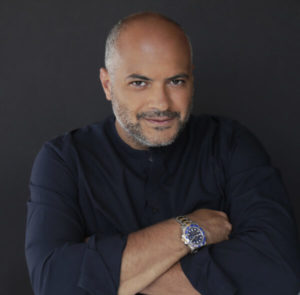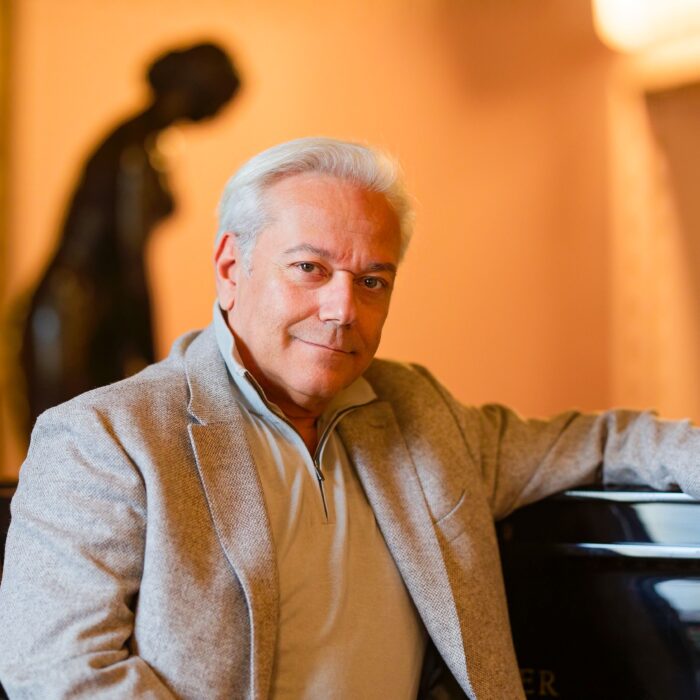
Q & A: Gaston Rivero on Young Artists, Career Development, Mentors & Oper Leipzig
By Francisco SalazarCredit: Fadil-Berisha
During the past year, tenor Gaston Rivero has described the pandemic as a challenging period but a necessary break for him. It has made him think of the priorities in his life and what he wants to do with his career.
During this time, he became a member of the voice teachers team of the Lotte Lehmann’s Akademie in Perleberg, Brandenburg, Germany and sponsored several artists in concert performances. He also continued his own performing career to live and virtual audiences.
As he gears up for the 2021-22 season, Rivero spoke with OperaWire about the work of his past year, his career development, and his relationship with Oper Leipzig.
OperaWire: How have you been during this time of COVID-19?
Gaston Rivero: It has not been an easy period but in a way, it is something that was very necessary for my life. I needed to stop and slow down for a year. We tried to take the best from this very chaotic and problematic situation. I had been working and working for the last 10 years. In the last year, I tried to take some time for myself and focus on the positive. The most sensitive part was to keep the voice moving and giving 50 performances a season and cutting that to 10 which I did this season was a huge difference. I was able to organize a schedule with coaches and pianists and sing as much as possible at home and in rehearsal rooms. I have also tried to run through a minimum of one opera a week. I also tried to organize an exercise schedule and to run five or four times a week and reach 50 kilometers a week. I also tried to read the least information connected to corona because it could depress me. I would read once a day and then not think of it.
OW: You were able to return to performances in the summer. What did that feel like?
GR: It was weird. I cannot complain because, during this period, I was able to sing every month. But what feels weird is not my presence on stage or interaction with my colleagues. It’s a theater with only 400 or 500 people at most. That was a weird and strange feeling. I am used to having at least 2,000 people in the audience and to have less than that is a little odd.
Personally, when we have a small capacity of people, those people in the theater are those that love opera and the arts. I sang “Carmen” in Leipzig and the capacity was only 400. Those 400 people were cheering and screaming as if it was a full theater. It was applause that I had not heard in Germany. They clapped and screamed after every aria, These people are the real audience. They are the ones that deeply appreciate classical music.
OW: You are performing this at Leipzig, Savonlinna, and Essen. What does it feel like to perform a full schedule?
GR: I must tell you that I go week by week. I have a number of productions and I am hoping for the best but waiting for the worst. This is my mentality at the moment and I am ready for any changes or circumstances that can happen. The losses have been huge and the backups are very minimum for the artistic world. As guest artists, we are in a particular situation because we did not receive health from theaters. In my case, I performed a lot in Germany and we were able to reach agreements with companies that were approved by the government. But I have a lot of colleagues who did not have the same fortune.
I have also worked in Prague and Budapest and in certain cities, they are doing rehearsals until the performance and in some cases, one performance out of 10 was done and they did a live stream. I don’t want to get false expectations and I prefer to go week by week, training, preparing operas, helping what I can. In August I taught at the Lotte Lehmann Academy and I am doing whatever I can.
OW: During this past year, you have also been sponsoring artists in concerts. Tell me about that initiative?
GR: Some time ago someone asked me what is the life of an artist. My answer was, it should be fun and full of light because when we are performing we have to give the best of ourselves with top quality and technique. And that is a responsibility. That is the reason why I have been helping these artists because they have real talent and people that were recommended to me. I wanted to help them during a period that was not easy and sponsor concerts so they could bring their skills into the media and get them their recognition. And that has been extremely positive because the results were very good. For example, this Italian pianist Sandro Russo is now one of Steinway and Sons Artists. I sponsored a concert for him in Berlin and Dresden. Unfortunately due to the pandemic many of his concerts were canceled but the talent and skills are there. The only thing he needs is recognition and it will come.
This is a joy because we are doing it for the future and it is for a bigger cause and a bigger reason.
OW: Your repertoire is made up of the heaviest tenor roles in the repertoire. How do you maintain the voice?
GR: I had the luck of working with some of the greatest teachers in the world. One of those was Eugene Kohn and he was extraordinary and we worked for six or seven years and he trained in every direction in order to have the focus and concentration and the solid technique. I also worked with several coaches from Juilliard and Manhattan School of Music. I also worked with many who taught me acting. I am very lucky to have worked with these coaches because they have either retired or died and that helped me in my entire career.
The experience on stage has helped me especially the constant challenges that I face. And that is what I want to teach singers who I work with at the Lotte Lehmann Academy. I want them to understand what “voce in maschera” and I want to help them in that direction. In the last 20 years, singers have tried to modify the sound of their voice in order to create a more interesting sound and that is a huge mistake. The vocal cords are something you should respect and as long as you sing with “voce in maschera,” you can manipulate the sound. If you have this technique you can sing in any position and run around the stage.
OW: What are the keys to singing the dramatic repertoire?
GR: You have to be humble. You need to know your limits. When you have to sing a role in “Otello” or “Aida” or “Manon Lescaut,” you have to understand it is like running a marathon. If you cannot arrive at kilometer number 42, do not do it.
I remember that 15 years ago I received an offer for roles that were not the correct ones at that time and I said no. I said, “I’m sorry but no.” It was Alvaro in “La Forza del Destino” but at that time I wanted an Alfredo in “La Traviata” or Romeo. Those people did not support me and I was never called by them. But today I am still singing. That is the target. To extend your career as much as possible with quality.
OW: When you started out you sang lighter roles. How did the voice progress toward your repertoire of today? Did the voice change?
GR: The voice definitely changed but it changed for the better. When I said you have to be humble, you have to know what you can do and what is too much and what is too little. At the moment when I was singing the lighter repertoire, it was difficult because it is repertoire that is easy to cast, so you have to deal with politics and more with decisions from companies and whether they like you or they admire you. That was difficult.
When I met Eve Queler, I sang several small roles and she helped me go into more difficult roles. She helped me prepare “Un Ballo in Maschera” “Tosca” and other roles that helped me bring the attention to the companies. With the help of Eve, Eugene, and Israel Gorski, I started to swim in deeper water and since then I have focused on how to sing these big roles.
OW: This year you return to Oper Leipzig, where you have performed many times? Tell me about your relationship with the house and conductor Ulf Schirmer?
GR: I have been happy to debut several roles under the baton of Ulf Schirmer like “La Faniculla del West.” With certain conductors like Schurmer when they show admiration and they call me, I appreciate it and I want to work with them. Working in Leipzig, I have been able to connect with an audience and the director told me that sometimes, the audience calls to ask if the Latin tenor will be performing. It is a nice feeling, If they want to call me, I am happy to be back.
With Ulf Schirmer and with other conductors like Daniel Barenboim or Gianandrea Noseda with whom I have worked with a lot, they are serious people. They are not pretentious and they are top names with legendary careers. They are so humble and Ulf is one of them. Of course, you feel intimidated but when you meet them, they are so humble. They are real talent and it is a pleasure to work with them and the purpose of what we are working for. I am glad that most of the conductors that I have worked with have been amazing people.


